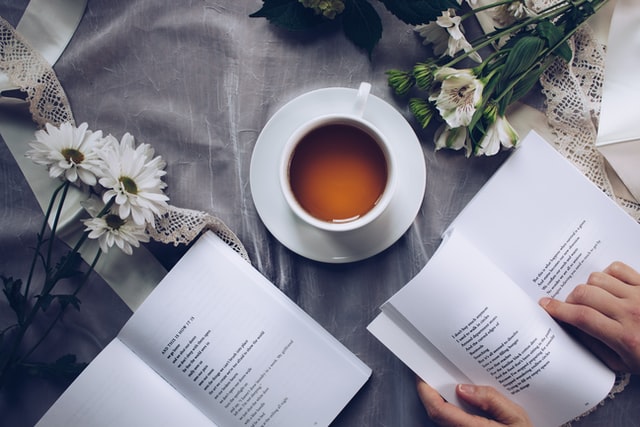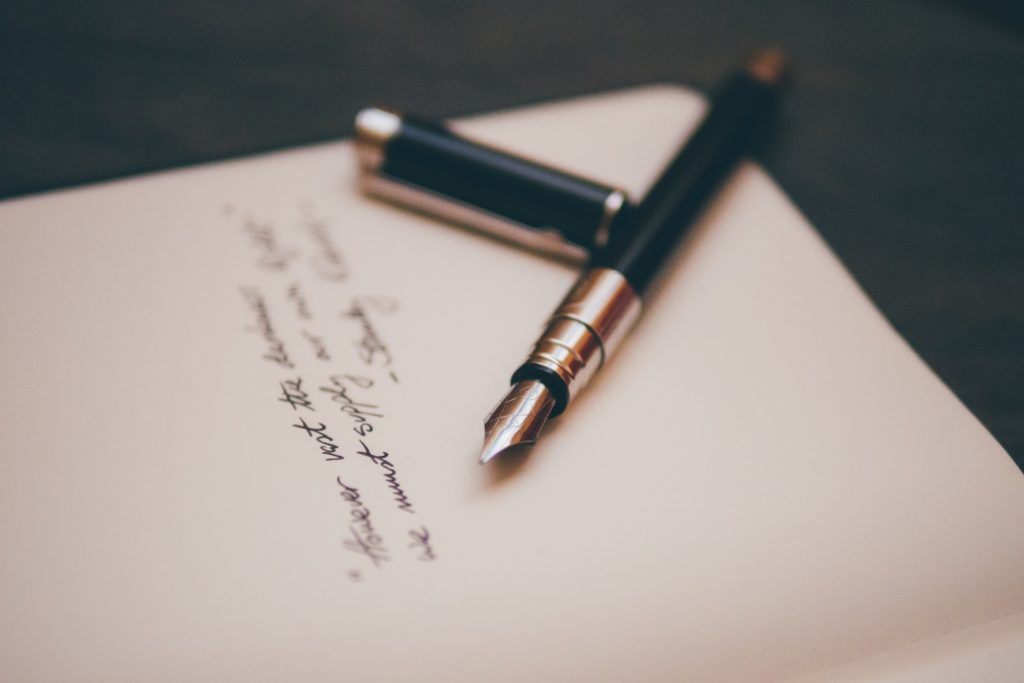Many people believe that reading nourishes the soul. It goes without saying that reading sharpens your creativity and knowledge as an educational experience. However, reading books can be time-consuming, and some people may find themselves giving up halfway through a book. As an alternative, we recommend reading poetry in your free time.
Contents
Poetry in Psychotherapy

Poetry is language at its most distilled and most powerful.
Rita Dove, American Poet
A powerful poem that shakes the reader’s senses can transform our cognition, which psychologically benefits both the reader and writer.
According to a poetry therapy researcher, the best poems to prescribe in psychotherapy are those that have somber and sad beginnings that end with a sense of hope and optimism.
By reading, memorizing, and quoting such poems, a person can feel that he or she is not the only one with those experiences. Subsequently, seeing the recovery of others can lead to therapeutic effects.
Mental Health Benefits of Reading Poetry
Effect 1: Reading Poetry Nurtures Your Creativity and Expressiveness

When we read novels and stories, we “read between the lines” using our imagination. We try to understand the implications of what is written and what is not written. Poems are shorter, so there is more room for imagination. As an example, let’s take a look at this poem by American poet Langston Hughes.
With the sun in my hand
So Tired Blues – Langston Hughes
Gonna throw the sun
Way across the land-
Cause I’m tired,
Tired as I can be
At first glance, the poem may seem simple and unremarkable. However, because it does not say much, it is fun to let your imagination run wild. In my personal opinion, the shortness of the poem conveys the speaker’s weariness and exhaustion, using the very last of his remaining strength to “throw the sun across the land”, so that night would fall and he would finally be able to rest. But there are many other ways to perceive poetry. Is the speaker simply sleepy from using his energy? Or is there a deeper meaning to the cause of his fatigue? What you feel is up to you.

Poetry is also a good way to train your imagination, as it allows you to imagine and think about scenes and psychology from textual information. Planning and developing ideas are important skills for active work, so reading poetry can be an effective way to hone your imagination.
On the other hand, it is also a good idea to try writing poetry.
Since poetry needs to evoke various scenes in a few simple words, the writer needs to be able to express himself lyrically and multilaterally. It requires a depth in perspective and various understandings of values, experiences, and sensitivities. In addition to reading poetry, writing poetry is also a great way to improve mental health.
Effect 2: Reading Poetry Increases Your Ability to Empathize

A study across 274 Japanese university students showed that reading and getting emotionally involved in the text can have a positive psychological effect.
A questionnaire was given to these students, intended to measure empathy levels. The results found that there was a strong correlation between students who read books, and students who have a higher sense of empathy. Specifically, students who read relevant books when feeling depressed and empathized with the way the characters live and think, were more likely to also respond that they are “good at reading people’s feelings and subtle changes in facial expressions” and “have a good understanding of my own personality”.
In social life, many people feel lonely because they are unable to fit in with their surroundings, and feel that they are alone. However, even in such a situation, people who read books with a sense of empathy tend to have a higher understanding of other people’s psychology, making greater attempts to understand others.
Effect 3: Reading Poetry Creates a Feeling of Relaxation

One study at a Japanese university found that silent reading and recitation of poetry have a positive effect on mental health.
It is also said that silently reading a poem with positive content can make you feel relaxed and at ease. This is thought to be due to the “mood-congruency effect“, where reading positive poetry makes you feel positive.
On the contrary, data shows that if you read a poem with negative content, you are likely to feel negative yourself. Therefore, if you are thinking of reading poetry to calm your upsetting feelings, it is better to know the content and theme of the poem before you dive in.
Effect 4: Reading Poetry Takes Your Mind off Everyday Stress

Reading poetry expands your imagination, directs your focus away from unwanted emotions, and allows your mind to focus on the poem. This temporarily steers your thoughts away from whatever is troubling you, which can be distracting and refreshing.
An important aspect of distraction is whether or not you can cover up your current negative state of mind with more positive feelings. Therefore, if you are trying to distract yourself with poetry, it is important to make sure that the poem has positive content.
3 Poets for Beginners in Poetry

There are many poets out there, both classic and modern, so it’s hard to know what kind of poems you should start with first. So, here are three poets I recommend for first-time readers.
1. Billy Collins
This poet is recommended for: Readers who enjoy witty and playful reads
Billy Collins is commonly regarded as one of the most popular American poets of the 21st century. He combines self-deprecating humor, mischief, and irony to create illustrative works that will likely give you a chuckle. Furthermore, the language Collins uses is very accessible and straightforward, unlike many poets who may use flowery and vague language.
Incidentally, Collins has a poem titled Introduction to Poetry, which you can read here.
2. Margaret Atwood
This poet is recommended for: Readers who want to enjoy many different themes of poetry
Margaret Atwood is a Canadian poet and novelist. Her works encompass many themes, such as gender, politics, religion, and climate change. Much of her writing, however, have common inspiration drawn from mythology and fairy tales, which Atwood mentions were an interest of hers from a young age.
The Moment is a poem that speaks on the relationship between human beings and the natural world and feels like an entire novel condensed into three short stanzas. You can read The Moment here.
3. Li-Young Lee
This poet is recommended for: Readers who enjoy storytelling and using their imagination
Li-Young Lee is an American poet, known for his simplistic language and use of “silence,” requiring the reader to fill in the gaps with their imagination. As a child of Chinese migrant parents, much of his works are inspired by his childhood, family history, and individuality. His poetry is highly influenced by classic Chinese poetry and frequently uses a narrative style. Lee’s poetry is passionate, evocative, and emotional.
Eating Together is one of the shorter poems by Lee, and evokes imagery of family sharing a meal at lunch. Try to see what you can feel by reading in between the lines. You can read Eating Together here
Enjoy Poetry for a Healthier Mind

There are not many people who read poetry on a daily basis. Many of us have lost touch with poetry, and therefore, it has gotten difficult to appreciate its beauty.
There are many benefits to reading poetry, and it’s clearly effective in maintaining and improving our mental health. If you are interested, try picking up a book of poetry sometime. There are also many online resources that have an archive of interesting poetry, such as the Poetry Foundation.
In addition, we now live in an age where we can use smartphone apps to take care of our mental health. There is an app that utilizes AI (Artificial Intelligence) technology to enhance a person’s mental well-being. Through conversations, the AI records your daily health condition, learning more about you as you continue to use the app. The more you use it, the more accurate advice and suggestions the AI can provide. You can expect to reduce stress just by talking to the AI.
In addition to reading poetry, using something like this can certainly help you live a better life.
→ SELF MIND
References:
Aoyagi, Y., & Kaminaga, M. (2015). Reading and resilience in adolescence. Journal of the Faculty of Culture and Education at Saga-University, 20(1), 25-32.
Morita, H., & Sugamura, G. (2014). Reading poems to oneself affects emotional state and level of distraction. The Japanese Journal of Psychology, 85(5), 437-444. doi: 10.4992/jjpsy.85.13027
Sada, Y. (2000). Active Mental Rest(Oral Reading): Effect on Perceptual-Motor Learning. The Japanese Journal of Educational Psychology, 48(2), 138-144.



